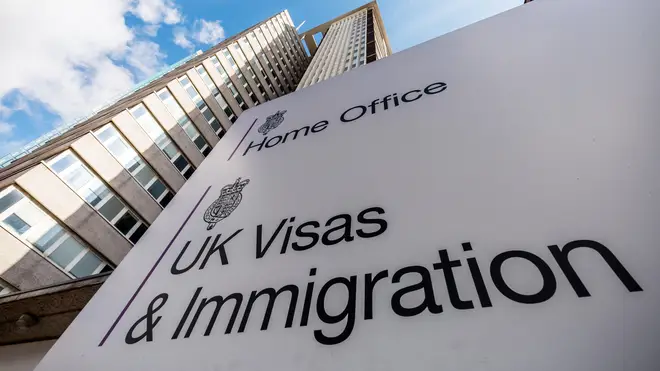
Clive Bull 1am - 4am
16 April 2022, 16:42

The Home Office has asked staff to indicate their pronouns in emails because of "the wider cultural changes" taking shape in Government.
People working at the Visa, Status and Immigration Services department were told by bosses to state whether they identify as a man, woman or non-binary in their email send off, according to reports.
It would mean each member of staff would either end with he/him if they identify as a man, she/her if they identify as a woman or they/them if they are non-binary.
The controversial move has received backlash from unions and staff who say the requirement infringes on staff's right to "freedom of thought" breaching the Equality Act.
The Free Speech Union said: "We are concerned that this instruction, which appears to be mandatory, is a form of compelled speech that violates the right to freedom of thought, conscience and religion and the right to free speech and is a breach of the Equality Act 2010."
Read more: 'Big brother' speed limiting devices that set off alarms 'could be fitted to all new cars'
The Home Office has disputed the story, saying they don't have their pronouns in their email signature and that only a few colleagues do, The Times reports.
A Home Office spokesperson said: "This is false. Home Office staff are not compelled to list their pronouns on their email signature. Individuals are free to declare their pronouns, if they wish."
The Home Office would not be the first organisation to implement pronoun requirements with the National Security Agency, previously telling staff: "Sharing your pronouns, if you are comfortable doing this, helps to create an environment in which this is normal.
"You can do this by: adding your pronouns to your email signature or sharing them at the start of a slidepack."
Read more: Six arrests after Olympians scale oil tanker at Extinction Rebellion protest
Retailer Holland & Barret have also introduced pronoun signalling name tags which also easily identify the languages spoken by colleagues and details including length of employment, and if they are hard of hearing.
The move may be welcomed by LGBTQ+ groups with Stonewall advising on their website: "When you’re at work, you can take the lead by saying your pronouns when you introduce yourself at the start of a meeting.
"Not only will this encourage your colleagues to do the same, but it will help everyone get used to talking about pronouns, which will help trans people feel more comfortable to do the same.
"Including pronouns in e-mail signatures is another great way to show that you and your organisation is committed to trans equality."
But they add: "Including pronouns in e-mail signatures should be encouraged, but not be made compulsory as not everyone may feel comfortable sharing their pronouns. There are many different reasons for this and it may be true for both cis and trans staff."